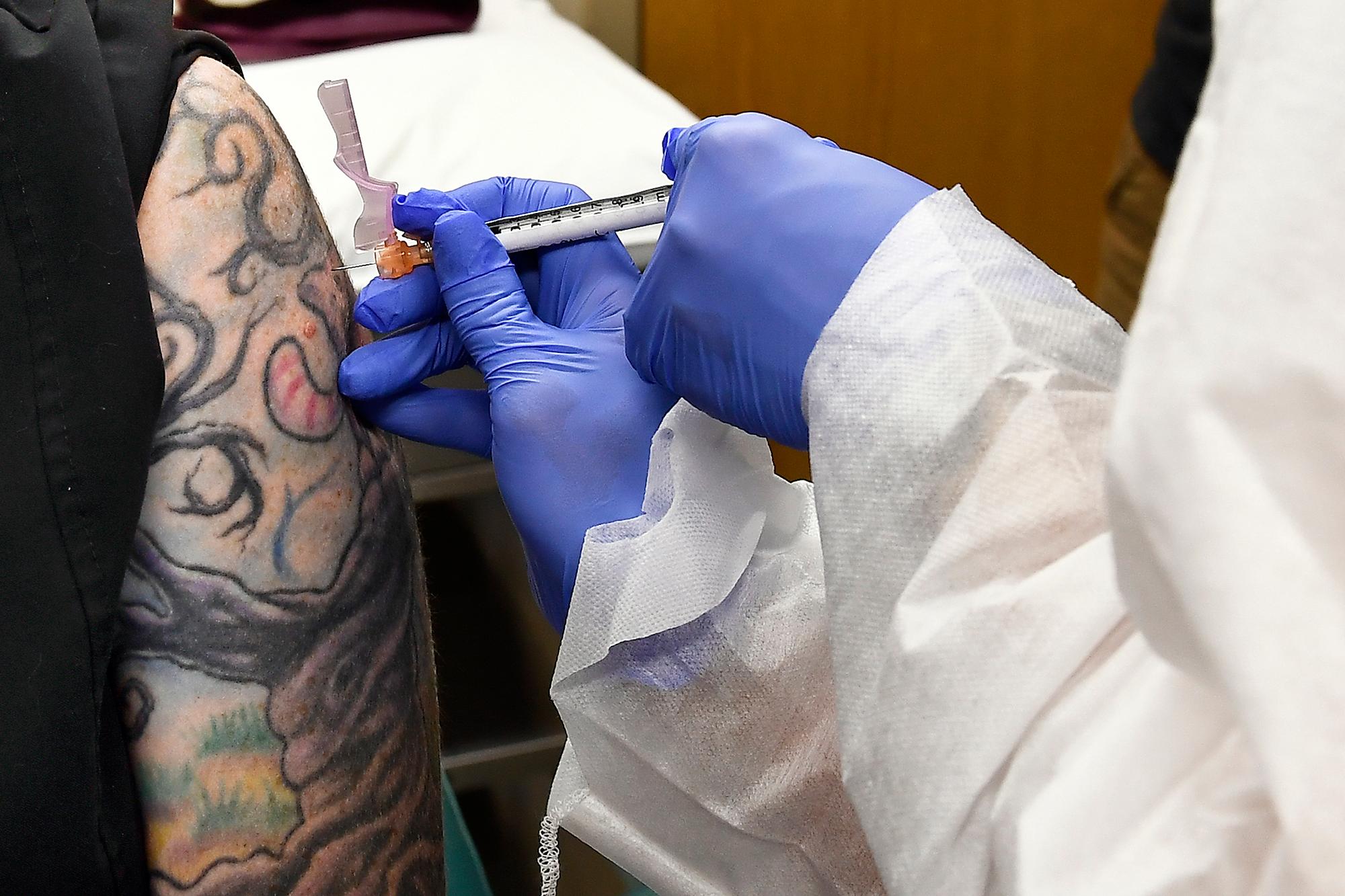
With word of two effective vaccines for COVID-19 possibly on the horizon, Colorado is now faced with figuring out how to store, distribute and track the precious vials.
On Monday, drug manufacturer Moderna announced that early data found its coronavirus vaccine was 94.5 percent effective. That comes on the heels of last week’s announcement by Pfizer that its vaccine was 90 percent effective.
Neither has been approved for distribution, but even without peer review of the data, the developments offer a possible way out of the pandemic.
In October, Colorado submitted a draft plan to the Centers for Disease Control and Prevention that provided a blueprint for how the vaccine would be distributed and which Coloradans would be the first to get them.
Gov. Jared Polis optimistically predicted the state could get 100,000 to 200,000 doses in December and early January. The state plan calls for health care workers to be first in line for the vaccine, including those who work in assisted living facilities.
“They're obviously the greatest risk," Polis said in an interview last week. “Some of them have come down with COVID. They deal with patients with COVID.”
Health care workers, first responders and nursing home residents would get the vaccine first.
First responders like police, firefighters, corrections workers and others deemed members of Colorado’s “critical” workforce would be next, then residents of nursing homes and long-term care facilities, followed by people living in close quarters like prisons and shelters for the homeless.
Another category, essential workers — think those who work at grocery stores and meatpacking plants — would be prioritized next, and then Coloradans over 65 and those with pre-existing conditions.
The draft plan also points to marginalized communities, particularly people of color, who have been disproportionately affected by the coronavirus. Planners say they considered those inequities in prioritizing which groups get the vaccine first.
The general public would be part of the final phase of vaccinations.
State epidemiologist Rachel Herlihy said that means it will be a while before the vaccine has a widespread impact.
“It's really not going to be until several months into 2021 that we'll have sufficient numbers of doses to start seeing an impact of the vaccine on our immunity in the state,” Herlihy said. “So we have many months to go, unfortunately.”
Herlihy said pharmacies and private providers are going to be an important part of the distribution system.
“We ... are going to need to ensure — similar to what we've done with access to testing — that this vaccine is distributed widely across the state and that individuals have access to it when we have the sufficient doses,” Herlihy said.
Vaccine distribution is just one of the challenges. Vaccine mistrust is another.
But along with how the vaccine is distributed and who gets it first is another, there is a very different worry for state officials: People who refuse the vaccine for a variety of reasons, including fears that it will have adverse side-effects.
State Rep. Kyle Mullica, a state lawmaker from Northglenn and a nurse at the emergency department at Presbyterian St. Luke’s in Denver, is among those concerned.
"It puts our communities in a tough position when people are hesitant to get immunizations,” Mullica said. “We have to get to a [sufficient] rate [of vaccines] to protect those who can't get vaccinated and for those who are most vulnerable [like] our elderly, our kids.”
Mullica believes the internet has a lot to do with spreading misinformation about vaccines and their safety.
“People can get information from anywhere they want ... and people can put out anything they want,” Mullica said. “And sometimes that's not accurate information...that's not scientifically based information.”
In the meantime, Polis cautioned that while there is light at the end of the tunnel, this isn’t the time to let up on social distancing.
“Let's double down on social distancing [and] let's double that,” Polis said. “I know it's hard not to see your friends. I know it's hard not to live the lives you want to live, but now we know this is only for a couple more months.”








